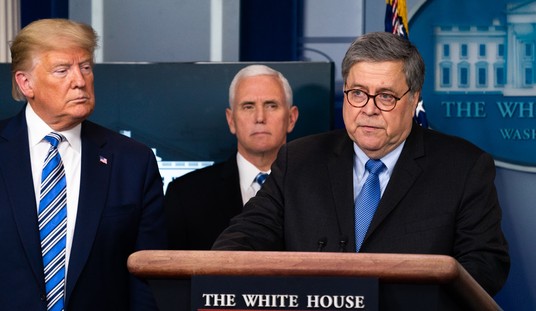In the Wall Street Journal, Sens. John McCain and Lindsey Graham write that we need to take out Syrian dictator Assad in order to take down the Islamic State.
The airstrikes and other actions President Obama is taking against Islamic State deserve bipartisan support. They are beginning to degrade the terrorist group, also known as ISIS, but will not destroy it, for one reason above all: The administration still has no effective policy to remove Bashar Assad from power and end the conflict in Syria.
That’s the edititorial’s first paragraph, and it goes off the rails quickly.
For starters, there is no evidence that the US-led airstrikes are actually degrading ISIS at all. The allied air campaign is barely a campaign. Call it a “CINO” — a Campaign In Name Only.
It only amounts to about four airstrikes per day, against a group that now occupies a huge and expanding territory. Even while the airstrikes have gone on, at that pitiful rate of about four per day, ISIS has edged closer to Baghdad in Iraq and is set to seize control of Kobane on the Syria-Turkey border. That battle may yet draw Turkey, and therefore NATO, into the war.
McCain and Graham write that they disagree with the administration when it says that Assad is a problem who can be dealt with later, because Assad empowers ISIS.
Administration officials have called their approach “ISIS first.” As for Mr. Assad, in the words of Gen. Martin Dempsey, chairman of the Joint Chiefs, the administration will “defer that challenge into the future.” This is not a luxury we get to choose. And Mr. Obama himself recently said he does “recognize the contradiction” in his own policy—which is that by confronting Islamic State but not Assad, the U.S. may unintentionally benefit the ruler whose ouster he continues, rightly, to demand.
Unfortunately, this is not the only self-defeating contradiction in the administration’s Syria policy.
After Islamic State stormed into Iraq in June, Mr. Obama argued that Prime Minister Nouri al-Maliki ’s alienation of Sunnis had strengthened the terrorist group. Destroying Islamic State in Iraq, the administration suggested, required Mr. Maliki’s removal and an inclusive new government. Why not the same urgency about Syria?
For one thing, the US has leverage in Iraq as a nominal ally that we do not have in Syria. Assad is and will likely always be an enemy of the United States and the west generally, and an ally with our adversaries in Moscow and Tehran. The United States is simply in no position to order Assad to do much of anything, and the Obama administration demonstrated its lack of seriousness with the president’s disappearing “red line.”
Mr. Assad all but created Islamic State through his slaughter of nearly 200,000 Syrians, and he has knowingly allowed the group to grow and operate with impunity inside the country when it suits his purposes. Until we confront this reality, we can continue to degrade Islamic State in Syria, but Mr. Assad’s barbarism will continue to empower it.
We are not actually degrading them strategically; see above. We are hitting them tactically, in specific circumstances, such as the Mosul Dam and now the battle for Kobane. This is a recipe for a very long and largely ineffective war.
This points to another contradiction: How can we arm and train 5,000 Syrians and expect them to succeed against Islamic State without protecting them (and their families) from Assad’s airstrikes and barrel bombs? Or expect moderate groups in Syria fighting Islamic State to take advantage of U.S. airstrikes if we do not coordinate or communicate our operations with them? This is reportedly not happening. Instead, Mr. Assad is exploiting U.S. airstrikes to kill the very people we want as our partners. This is not just a recipe for failure; it is immoral.
Our efforts to build up a viable Free Syrian Army to liberate Syria from the evils of Islamic State and Mr. Assad will surely fail if the Syrian ruler is not dealt with. To expect Mr. Assad to sit on the sidelines as the Free Syrian Army gains capacity would be a colossal mistake and doom efforts to stop Syria from sinking further into the abyss.
It’s unlikely that the U.S. can maintain public support among Syrians for the fight against Islamic State, or succeed without their support, unless it does more to end Assad’s war against them. Syrians are already asking why America is bombing Islamic State but not stopping Mr. Assad from bombing them. This only hardens their pervasive belief that America cares only for itself. This belief threatens to strengthen Islamic State and discredit our moderate partners among the anti-Assad forces.
At this point it is unlikely that the Obama administration can even maintain public support for the war among Americans. He refuses to fight effectively and has already told the enemy that the greatest ground fighting forces in the world will not trouble ISIS. The Iraqi military remains mostly useless, and the Kurds are fighting heroically but they are outgunned by ISIS.
How moderate are the Free Syrian Army and other similar anti-Assad Syrian groups? McCain, who has consistently downplayed the jihadist element among Assad’s enemies, is hardly credible on that question.
According to Patrick Poole, the Free Syrian Army has been operating openly with ISIS and another al Qaeda-linked terrorist group.
Skipping to the end of the editorial, after the senators have rightly noted that it will take American forces on the ground in order to eventually defeat ISIS…
The reality is that defeating Islamic State also requires defeating Bashar Assad. Avoiding this reality, as Mr. Obama still tries to do, will only postpone the problem at growing risk to Syrian lives and American security. And when Syria deteriorates further, as it surely will, the U.S. will be compelled to respond once again, but our options will be fewer, worse and costlier.
And what of Russia? And Iran? Will those two allies of Assad merely cut him loose in the face of Obama’s military prowess, or will they defend him if only to make more trouble for the United States? Iran is likely to do what it did in Iraq and wage a jihadist proxy war against the US-led coalition. There is already evidence of Russian intelligence working alongside Assad’s forces in Syria. Putin knows that under Obama, American military forces have been cut to the bone. We are no longer capable of fighting two wars simultaneously, as we were from the Reagan through the George W. Bush administrations. Russia may find it useful to keep violence on enough of a boil in Syria and Iraq to to keep America’s attentions thee, and allow Russia a freer hand in Ukraine and eastern Europe.
Assad is a very bad guy, he is backed by very bad guys, but ISIS is worse, and removing him at this stage runs the strong risk of opening up a vacuum into which any number of people and groups who might be better, but will probably be worse, would step in. Without any American ground forces in the fight, the US will be in no position even to contemplate getting a leader as good/bad as Maliki was in Iraq. It’s more likely that a post-Assad Syria gets led by a puppet of Iran or Russia (or both), or by an Islamist dictator, or it becomes another Libya or Somalia — a failed feudal state in which Islamist terrorists thrive.
The strategic situation in Syria is as complex and volatile as any that the United States has ever faced. It’s a terrible moment to have one of the most ineffective, inexperienced, duplicitous and indecisive presidents that America has ever had. But that is what we have, and what we are stuck with until January 2017.








Join the conversation as a VIP Member